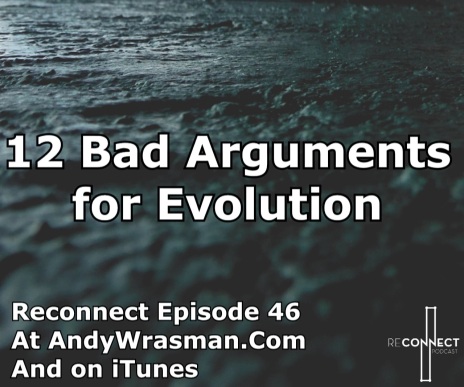This blog post will compare two worldviews: the Christian account of everything and the account of everything according to naturalism. These two worldviews will be compared in four categories: view of the Creator, view of creation and Creator-creature relations, view of salvation, and the ethical implications for creation from these previous viewpoints.

View of the Creator
According to the Christian account of everything, God has always existed; he is eternal and exists in three persons, the Father, the Son, and the Holy Spirit. All things that now exist came into existence out of nothing through the Father’s spoken word and are held together by his Son. (Genesis 1-3, John 1:1-4, Colossians 1:15-20, and Hebrews 1:1:-4) The narrative of Creation in Genesis (as well as the rest of Scripture) indicates that God is a personal being who was very much involved in the creation of all things. This is indicated by the design and plan of the days of creation, in which God created in a particular order of creating boundary markers within his creation with a progression of creating life within those boundaries for the care and safety of his creatures (Day 1 – Light and Darkness/Day 4 – Heavenly Bodies, Day 2 – Land, Sky, Water/Day 5 – Creatures of the Sky and Water, Day 3 – Vegetation on the Land/Day 6 – Creatures of the Land, including humanity). He is still very active in his care for his creation.
According to naturalism’s account of everything, all things have arisen purely by blind chance. Order has come out of chaos. Life has come from non-life. Minds have come from mindless matter. Laws of nature have simply emerged (or have always been) and are assumed to be held in consistency by nature itself. Nature is all that there has been, all that there is, and all that there ever will be, though this cannot be empirically observed, it is a position held on faith that nature when given enough time will impersonally bring about all that we currently experience through a process named natural selection. In short there, is no Creator.
View of Creation and Creator-Creature Relations
One’s view of nature is directly tied to one’s view of the Creator. In the Christian account of everything, nature is best understood as having been created with a proper distinction between it (creation) and the Creator. The Christian view of creation comes from what God has divinely revealed in his Word about his creation, which is that his creation was originally created – very good! God’s creation as it stands now is not as God intended it to be. Through the free-agency of his creatures (first by Satan and his angelic followers and Adam and Eve and now us) who rebelled against God’s will for his creation (the boundary markers of the law that were set out of love for the safety and well-being of all God created), creation itself has been wrecked with sin, death, and evil and stands far from the very good origins of God’s creation.
According to naturalism’s account of everything, all is chaotic and in a state of constant change. Naturalists who hold true to their account of everything must admit that there is no purpose or meaning in a world that is the product of mindless, random selection, and constant motion. There is no Creator-creation distinction/relationship; all is nature; all is matter.
View of Salvation
The Christian account of everything has a view of salvation in which God enters into his creation through his Son who became a part of creation through his assumption of a human nature into his personhood. It is through the Son that God has reconciled all of creation to himself and it is through his Son that one day all things will be restored to God’s original plan (theologian’s debate if this will be a recreation of creation or a new creation, something akin to a Creation 2.0, but it is clear in Scripture that all things will be made new at Christ’s return with a freedom from sin, death, and the devil forever for those who are God’s children through their faith in the Son and his saving work!). (Revelation 21-22)
It is in the view of salvation that naturalists take many divides. Some naturalists are intellectually honest with their account of all things and recognize that death is the finality of one’s conscience existence; there is no salvation; there is no life after death. Such naturalists may tend to find a form of salvation in living one’s best life now (YOLO – “You only live once.”). Anton LaVey’s philosophy of Satanism is an example of this naturalistic view of the world and life and is the prescription for how to best live this life to one’s maximum pleasure. LaVeyan Satanism is very much hedonistic materialism in which salvation is found in a freedom from social and religious constraints that hinder one from indulging in their carnal desires.
For other naturalists, salvation is found in evolution, an ever occurring progression of improvement (or that is the hoped-in product of nature’s constant state of change – improvement of life). Some have taken up an active role in this evolutionary progress and have embraced transhumanism – a movement that actively seeks to speed evolution to a new humanity through the joining of human life with technology. Transhumanism’s highest aim is the implantation of one’s mind into a machine so that one’s consciousness can “live on forever” beyond the limitations of one’s physical body of death. This is a form of material salvation, though it betrays the fact that one is more than mere physical matter, because transhumanism’s salvation is ultimately found in the preservation of one’s immaterial consciousness.
Ethical Implications
In the Christian account of everything, God is the ultimate standard of morality. He is good, and it is from God’s eternal state of immutability that we can appeal to an absolute standard of right and wrong for Creation. For humanity’s ethical role in the grand scheme of all of creation, God has placed us here to be stewards of his creation. We are to use our God given abilities, including our reasoning capabilities, to care for God’s creation and to cultivate it to its betterment out of love for God and for our neighbors and for our fellow creatures.
In the naturalism’s account of everything, there again is a divide that occurs depending on one’s view of salvation. For the naturalist who recognizes that there is no salvation; ethics is boiled down to the four-word mantra of Allister Crowley (the Beast) and Anton LaVey, “Do What Thou Wilt.” There is no God above, no hell below; eat, drink, and be merry for tomorrow we all die! For the naturalist who sees salvation in evolution, ethics becomes utilitarian- what best serves survival. This survival could be centered on the whole of humanity, within a particular collective of humanity, or within the individual. There is no standard of absolute right and wrong, morality is subjective.
Please visit Contradict Movement for stickers, tracts, shirts, and books.



